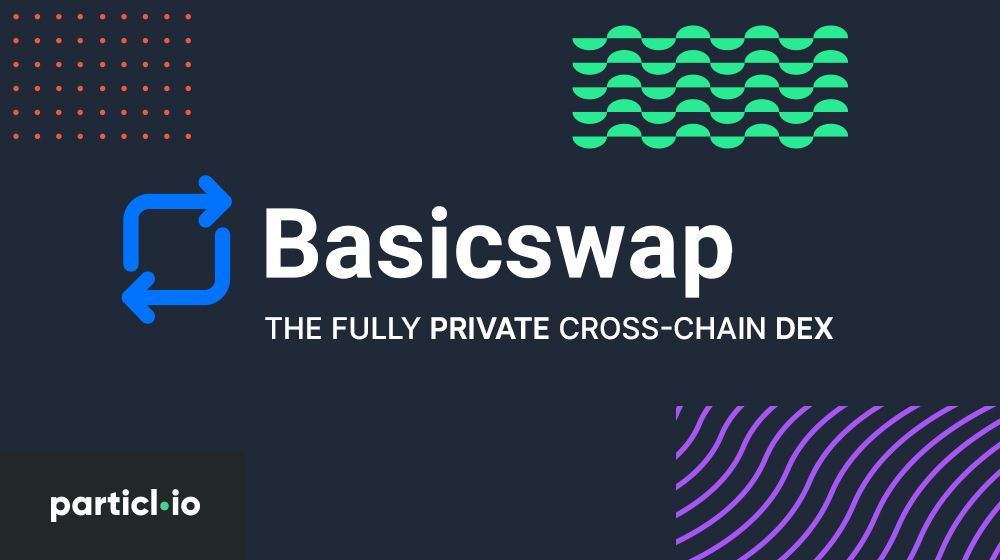
Starting with the creation of the "first altcoin", Litecoin, people have been pondering and developing ways to swap their favorite digital assets without relying on third-parties — the goal being an efficient, simple and private way to swap Bitcoin for Litecoin, or Monero, or any other cryptocurrency, that holds the same values as a traditional P2P cryptocurrency transaction. The immediate problem is that these cryptocurrencies generally reside on separate blockchains, which do not offer a lot of interoperability.
Developers and tech entrepreneurs of all kinds have spotted this need in the market and went to work trying to bring to life a series of decentralized trading exchanges — often abbreviated as "DEX". This led to an increase in the number of DEXs and decentralized trading protocols which, in truth, really have large degrees of variation between them in terms of decentralization or even straight up usability.
One thing that can be observed is that, even today with dozens upon dozens of DEXs, a substantial quantity of them focus exclusively on intra-chain swaps, meaning swapping different assets belonging to the same chain together. Those are unfortunately very restricted in their swapping abilities, and do not fix the underlying issues regarding important but perhaps more difficult to integrate blockchains like Monero.
Crossing the Chain Barrier
To many users, the details of how such cross-chain trades are accomplished under the hood is not very much on their mind — and the distinction may even seem futile. The rebuttal is obvious; “But what about X and Y exchanges that claim to be able to make cross-chain swaps? After all, I can swap BTC for CAKE on the Binance Smart Chain!" Unfortunately, in nearly all cases, the interoperability offered by cross-chain DEXs does not function in a way that is optimal to those users’ interests. And that's especially true for those who need additional privacy protections for their asset swaps, or simply those who are serious about decentralization and privacy.
There is a sad pattern we can often observe with lots of "new-wave" DEXs: many bold but ultimately lacking claims of interoperability without third parties are put forward. The way many of these DEXs achieve cross-chain compatibility is generally by adopting an illusory strategy which really ends up being a travesty both in terms of decentralization and of security.
A common strategy attempted to achieve that promise is the "wrapping", or "mirroring", of assets. With this strategy, the process of swapping can indeed be decentralized, but what you are ultimately left with is a wrapped asset on the very same chain you've initiated the swap from. A wrapped asset is a token on a smart-contract chain that is allegedly backed by the asset it claims to be mirroring.
The original asset is held, in custody, by a third-party which then issues a token worth exactly that asset (an IOU). The smart contract holds the custodian to its promise that it will pay you back the original asset once you redeem it in exchange for the wrapped asset. But as we well know, "not your keys, not your coins”.
Unfortunately, if the custodian loses access to your coins (which has happened in the past) there is absolutely no recourse. The custodian is even in a position to possibly reverse or freeze your transactions themselves, or lock you out from accessing your hard-earned assets. The possibility of this, we can all agree, is straying very far from anything decentralized and the original ethos of cryptocurrencies.
Another common strategy involves atomic swaps – this, however, comes with important challenges when dealing certain pairs or highly different blockchains, or with particularly rigid blockchains such as Monero.
The Challenges of Atomic Swaps and DEXs
Atomic swaps have been around for quite some time, having been first proposed in 2013. They allow two parties who don't know each other to safely swap cryptocurrencies without the use of a third-party. The process is time and condition based — hence “atomic” — and any failure to remain honest or forgo one's end of the deal automatically results in the assets being refunded to their original owner. It is, by design, impossible to cheat someone when doing atomic swaps.
But even with atomic swaps, true, uncompromised decentralization is very hard to achieve when you want to swap one cryptocurrency to another one from an entirely different chain. Notably, attempting to interact with highly privacy-centric coins such as Monero, which has a famously rigid but incredibly private blockchain structure, leaves us with very few user-friendly and decentralized alternatives: often requiring users to run a Monero node, a Bitcoin node, both, or deal with highly complicated experimental protocols lacking in even basic GUI.
Atomic swaps on their own are not enough for our purposes. In order to acquire true cross-chain operability on a bona fide exchange, and without giving in an inch on decentralization and privacy, atomic swaps require a secondary network, or layer, to coordinate some level of information between chains. That is precisely where a huge challenge lies, and why atomic swaps have not been widely available between two chains (especially involving Monero) as of yet.
That’s in major part what motivated us to build BasicSwap — a cross-chain, truly decentralized, and privacy-first DEX. When you trade, say, Bitcoin to Monero on the BasicSwap orderbook, no extensive node configuration is needed, and absolutely no wrapping of assets takes place. We instead made true cross-chain swaps possible by combining two groundbreaking protocols; atomic swaps, and Particl’s own SMSG mixnet network.

SMSG: A layer 2 Solution for Cross-Chain Interoperability
Bitcoin advocates often mention the role of cross-chain operability will be filled by the Lightning Network. Years have passed and, although we are seeing nominal progress on that end, it is unfortunately very slow and still complicated to setup. But because the ability to swap cryptocurrencies with full privacy is of dire need in this day and age, we’ve decided to take control of things and build exactly a solution for that: BasicSwap.
SecureMessaging (SMSG), a P2P messaging network inspired by BitMessage and developed by the particl.io team, is what powers the BasicSwap DEX in place of the Lightning Network.
It acts as the required messaging layer for the accomplishment of BasicSwap’s truly decentralized cross-chain DEX. SMSG is a simple message mixnet, where all nodes store a copy of everyone's end-to-end encrypted messages for a limited period of time. The sender of a message cannot exactly pinpoint the IP address of the receiver, because the messages defuse over the entire network.
All nodes attempt to decrypt every incoming message - if the HMAC check fails, then the message was either fraudulent or not addressed for you. This technology allowed us to successfully build a powerful and truly cross-chain DEX, that works using atomic swaps and 'scriptless scripts'.
This allows BasicSwap to relay vital atomic swap information from one chain to an entirely different one, even Monero, in a seamless and user-friendly manner and without coin wrapping, custodian entity, or any other centralized environment. This layer 2 acts as a powerful, entirely distributed bridge between chains that otherwise have nothing in common — an uncompromisingly distributed alternative with incredible potential for easy-to-use third-party integrations and contributions.
To learn more about BasicSwap, refer to this in-depth blog post or have a look at its section on the Particl Academy!
So here we stand today - trying to move the ball forward, always, towards a new era of decentralized cryptocurrency trading. An era where centralized, institutionalized, corporate “exchanges" and the substantial security liabilities they involve are simply not needed anymore. An era where everyone is free to trade whatever asset they want, efficiently and without third-parties.
If you want to help us build a freer world and more sane cryptocurrency trading conditions for all, we invite you to come test BasicSwap’s open beta, which goes live imminently, and send us your feedback. You can also take an involved role in this fight for freedom by providing liquidity and trading your crypto in complete privacy and away from centralized exchanges on BasicSwap!
If you want to learn more about the revolutionary decentralized ecosystem we're building at Particl, and if you want to contribute to the growth of online privacy and liberties, then come join our awesome global community of cypherpunks on Discord, Telegram, or Element — or just give one of our decentralized and privacy-first apps a try here.
